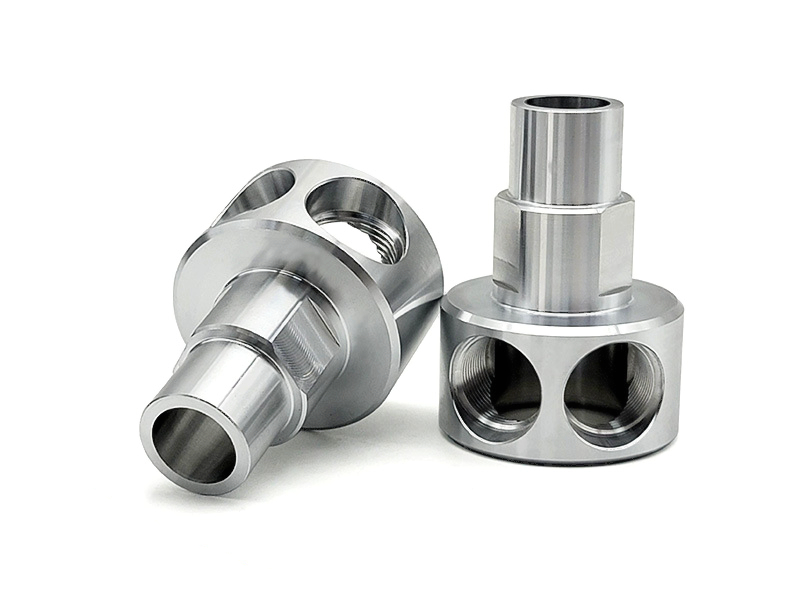Precision CNC Machining of Stainless Steel for Surgical Instruments
Introduction
Precision CNC machining is crucial for manufacturing high-quality surgical instruments. Stainless steel SUS316L, known for its superior corrosion resistance, is extensively utilized in medical environments, ensuring patient safety and instrument longevity.
In surgical applications, precision and reliability are non-negotiable. CNC machining processes are vital in meeting stringent medical standards, delivering consistency, high accuracy, and robust performance critical to patient outcomes.
Available Machining Processes
Several CNC machining processes optimize surgical instrument production:
CNC Milling Service: Ideal for complex geometries, providing high precision and repeatability essential for orthopedic implants and complex surgical tools.
CNC Turning Service: Essential for symmetrical, cylindrical surgical components, commonly used in cardiovascular surgical devices and dental equipment.
Electrical Discharge Machining (EDM) Service: Suitable for intricate designs requiring tight tolerances, often employed for delicate, precision surgical tools.
Additionally, advanced techniques like Multi-Axis CNC Milling enable the production of highly sophisticated instruments, addressing the evolving demands of minimally invasive surgery.
Typical Stainless Steel Overview
Common stainless steels used in surgical instruments include:
Stainless Steel SUS316L: Highly corrosion-resistant, particularly suitable for implants, surgical staples, and instruments exposed to bodily fluids.
Stainless Steel SUS304: Cost-effective with good corrosion resistance, commonly utilized for general surgical instruments like clamps, forceps, and scissors.
Stainless Steel SUS420: Known for superior hardness and edge retention, ideal for cutting tools such as surgical blades and scalpels.
Each grade offers unique properties, allowing manufacturers to select materials that precisely match surgical requirements.
CNC Machinability of Stainless Steel
Machining stainless steel poses inherent challenges due to its toughness and tendency to work harden rapidly. The solution lies in precision CNC equipment, carbide tooling, and carefully optimized cutting parameters, ensuring consistent precision and surface integrity.
Machining processes like CNC Grinding Service can refine tool edges and surfaces, enhancing performance. Proper cooling lubricants and cutting strategies further optimize stainless steel machining, reducing downtime and enhancing cost-effectiveness.
Common Surface Treatments
Surface treatments significantly enhance the durability, hygiene, and performance of surgical instruments:
Passivation: Effectively removes contaminants, maximizing the inherent corrosion resistance of stainless steel.
Electropolishing: Creates a smooth, microscopically clean surface, dramatically improving corrosion resistance and making sterilization processes more effective.
PVD Coating: Enhances surface hardness and wear resistance, significantly extending instrument life and reducing maintenance.
Other beneficial treatments include Black Oxide Coating, which is often utilized for aesthetic and protective applications on surgical handles, and Anodizing, which is commonly applied to aluminum components within medical devices.
Industry Application
CNC machined stainless steel instruments are extensively used across various medical fields:
General Surgery: Precision instruments such as forceps, clamps, and retractors.
Orthopedics: Implants, screws, and joint replacement components fabricated using advanced CNC techniques.
Dentistry: High-precision dental drills and orthodontic tools.
Cardiovascular Procedures: Highly accurate instruments, including stents and pacemaker components.
Minimally Invasive Surgical Techniques: Instruments requiring ultra-precision machining for laparoscopic and endoscopic applications.
Medical-grade CNC machining ensures that every instrument adheres strictly to healthcare industry standards, ensuring safety, reliability, and efficacy in surgical procedures.
Advantages and Limitations
Advantages:
Exceptional precision and repeatability.
Superior corrosion and wear resistance provided by medical-grade stainless steels.
Compliance with stringent medical and safety standards.
Extended instrument life, ensuring optimal performance through repeated sterilization cycles.
Limitations:
Higher machining costs due to increased tool wear.
Need for specialized CNC machining expertise and precision tooling.
Limited machinability without optimized processes and tooling strategies.
Despite these limitations, the precision, quality, and reliability offered by stainless steel CNC machining justify the investment, particularly when patient safety is paramount.
Frequently Asked Questions (FAQs)
What types of stainless steel are most commonly machined for surgical instruments?
How do surface treatments affect surgical instrument performance?
What are the specific CNC machining challenges of stainless steel?
Why is stainless steel preferred over other materials for surgical applications?
How important is surface finish in surgical instruments?

